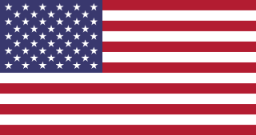President Joe Biden netted billions in his landmark climate-spending law to revive solar manufacturing in the United States — prompting the Korean panel giant Qcells last year to invest $2.5 billion into building the country’s largest photovoltaic factory in Georgia.
As the assembly line revs up this month, so does the federal government’s support.
Last Wednesday, Biden signaled plans to fulfill a U.S. solar manufacturers’ request to bring the full force of American trade restrictions down on imported Chinese panels. Last Friday, the administration announced a $255 million loan to a company promising to open in Tennessee one of the first new factories outside China in years to make polysilicon for solar equipment. On Monday, the White House launched a $7 billion “solar for all” program meant to help build 1 million individual systems across the country.
Yet solar manufacturers say it’s not enough to keep American factories open in the face of a massive influx of panels so cheap that some buyers are using the equipment to make garden fences. Blaming illegal subsidies in China for artificially lowering the price of panels, Qcells and at least six other U.S. solar manufacturers filed a petition Wednesday urging the federal government to crack down.
The filing asks the Commerce Department and the U.S. International Trade Commission to investigate whether panel producers in Cambodia, Malaysia, Thailand and Vietnam are violating U.S. trade laws against subsidizing exports and selling solar equipment for below cost.
“China and Chinese-owned companies are manipulating our market,” Tim Brightbill, the trade lawyer representing the American Alliance for Solar Manufacturing, said on a call with reporters Tuesday night. “Chinese companies went from producing less than 2% of global solar production in 2004 to near-total market domination today.”
U.S. trade tariffs already raise the price of Chinese-made solar and ban imports of panels produced with materials traced back to Xinjiang, where researchers at the United Kingdom’s Sheffield Hallam University recently concluded the government in Beijing has forced minority Uighur Muslims to work for free in prison camps.
Following a two-year hiatus, the Biden administration is set to begin enforcing new rules on Chinese companies circumventing tariffs on Chinese-made solar panels by rerouting trade through Southeast Asia.
But the American companies now allege that mostly Chinese-owned exporters in Cambodia, Malaysia, Thailand and Vietnam are violating “antidumping” laws against selling products abroad for cheaper than in the home market and requested U.S. trade authorities implement “countervailing duties,” or import fees to level the playing field in the American market.
The U.S. firms include Conval Energy, First Solar, Meyer Burger, Mission Solar, Qcells, REC Silicon, and Swift Solar, though Wiley Rein, the Washington, D.C., law firm handling the case, said it expects more to join in the coming days.
U.S. government scientists invented solar panels more than half a century ago, and the country monopolized manufacturing for decades. But production shifted to Europe and Asia in the 1980s. By the early 2010s, China vaulted forward to become the dominant supplier. Backed by low-interest state-backed loans, Chinese manufacturers drove down the price of panels below the point at which any U.S. company could make money.
Solar factories in the U.S. and Europe started closing at such a rapid clip, regulators on both continents accused China of violating international trade rules and slapped tariffs on imports. The restrictions helped U.S. manufacturers reclaim part of the higher-end rooftop solar market. While former President Donald Trump ratcheted up trade levies, he initially gave an exemption for the lower-quality “bifacial” panels on which utility-scale solar farms rely. The Republican revoked that exemption in 2020. Biden restored the waiver a year later. But in the face of record-low panel prices and government support so generous that Chinese dairy producers are getting into the solar-manufacturing business, the Democrat now looks poised to follow his predecessor’s strategy.
“In the past, we’ve been dependent on foreign oil from our adversaries. We should not make the same mistake with solar power,” Brightbill said. “Solar was invented here. It was perfected here. There’s no reason the U.S. should be dependent on Chinese companies.”
Complicating the solar manufacturers’ fight against China is the fact that the leading solar industry group in the U.S. fiercely opposes new trade restrictions. Solar is booming, with the vast majority of the nearly 264,000 Americans with jobs in the industry working in sales or installation, sectors that benefit from a steady supply of low-cost imports.
…
